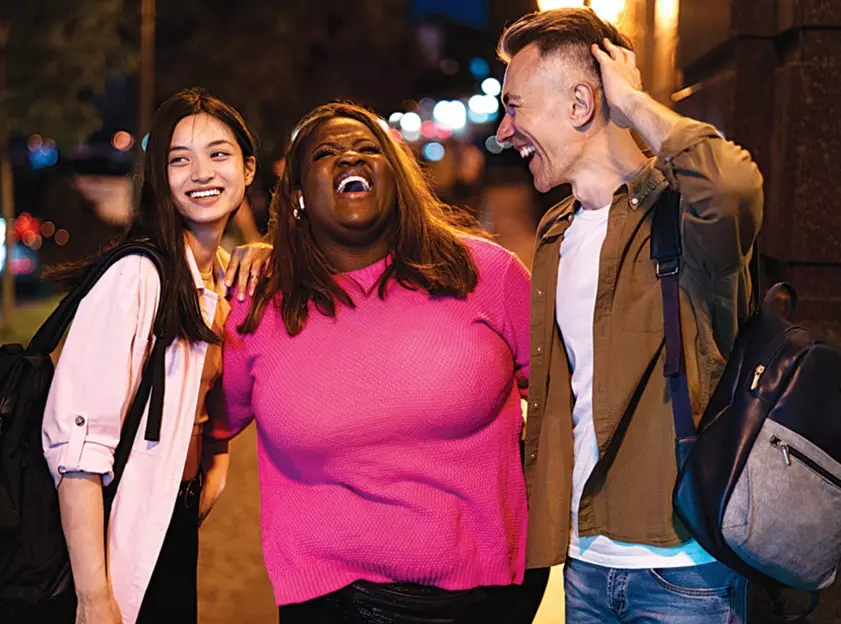By Rochelle Crasto
Copyright deccanchronicle

In many of India’s swankiest clubs, getting past the velvet rope isn’t just about showing ID—it’s about showing off the “right” body. Short dresses, sky-high heels, and a size-small silhouette seem to be the unofficial entry pass. Women are whispering (and tweeting, and ranting on Instagram) about bouncers who act like beauty judges, scanning not just your outfit but your waistline. “If you don’t “fit the aesthetic,” the party ends before it even begins. Desi Club DreadTake 25-year-old Arushi Verma, who was told outside a South Delhi club that her “look wasn’t appropriate.” She was in a black dress and sneakers. Translation? She wasn’t in a tiny bodycon with stilettos. “I wasn’t drunk, I wasn’t rowdy, I was just not…slim enough,” she recalls. “It felt like I was auditioning for a role I never signed up for.” Clubs defend themselves by claiming they have “standards.” But whose standards are we talking about? Walk into a popular Mumbai hotspot on a Saturday night, and you’ll notice the pattern—leggy women in minis, men in sneakers and T-shirts. Unwritten RulesThe unwritten rule is clear — your body is part of the dress code. “The pressure is insane,” says Rhea Menon, a marketing professional. “Girls starve themselves before weekends just so they don’t feel judged by a bouncer at the door.” Beauty At The DoorBouncers, originally meant to maintain safety, are now unofficial beauty arbiters. Instead of just checking IDs, they scan thighs, waists, and dress lengths. Some even drop “suggestions” about wearing heels or tighter outfits next time. “It’s ridiculous,” laughs Simran Khana, 28, a working professional from Pune. “Imagine a burly man at the door telling you your ‘look’ isn’t sexy enough. It’s body policing in HD.” But not everyone is laughing. For many women, this gatekeeping feels humiliating and discriminatory. Fat-shaming wrapped in velvet rope chic is still fat-shaming. And it’s happening in a space that markets itself as “inclusive,” “cosmopolitan,” and “liberated.” Of course, this is 2025, and body policing doesn’t go unchecked anymore. TikTok reels, Instagram stories, and X (formerly Twitter) threads are overflowing with women calling out clubs for rejecting them based on size. “Not thin enough for their party, but my money is still thin enough for their overpriced drinks,” one viral tweet read. Public shaming has begun to push clubs into awkward corners. Some deny the allegations (“We only check for proper dress code”), while others quietly tweak their entry rules after being roasted online. Nightlife Mirrors SocietyAt its core, body policing in clubs isn’t just about nightlife — it’s about the way society continues to measure women’s worth by appearance. In India, where fairness creams, “bridal diets,” and Instagram filters still dominate the beauty conversation, the nightclub door has simply become another stage for the same performance. “This isn’t about one club or one city,” says Bertille Fernandes, a marketing executive. “It reflects a larger cultural discomfort with women’s bodies that don’t fit into the thin, glamorous, hyper-feminine ideal. Clubs amplify it because they sell an image — if you don’t fit that image, you’re excluded.” Double StandardsWhat makes the trend particularly absurd is the double standard. Clubs love to call themselves “inclusive,” often hosting Pride nights, women’s parties, or diversity-friendly campaigns. Yet, the inclusivity ends at the door if you’re above a size medium. The irony is hard to miss: Dance floors that throb with slogans about freedom and self-expression but won’t let you in if your body doesn’t pass the test. Being turned away from a club for your body isn’t just a bad Saturday night — it chips away at confidence. Psychologists say such public rejections reinforce body-image issues and can spiral into self-doubt, anxiety, or eating disorders. “For young women, nightlife is often a space for socialising and freedom,” says Dr Aditi Sharma, a clinical psychologist in Mumbai. “When they are excluded for their bodies, it tells them — loudly — that they don’t belong.” This messaging is particularly toxic in a country already obsessed with weight loss culture. The global wellness industry is booming in India, from crash diets to new weight-loss drugs. Add nightlife fat-shaming to the mix, and the pressure to be “thin enough to dance” becomes yet another unreasonable expectation. The ultimate question is: who gets to decide what a party looks like? Should a club’s “aesthetic” trump a paying customer’s right to enter? For years, clubs have curated crowds based on wealth, connections, or fashion. But drawing the line at body size feels like crossing into outright discrimination. “It’s elitism dressed up as glamour,” says Nikhil Rao, a commerce student. Push For ChangeSome women are pushing back with activism. Hashtags like…



